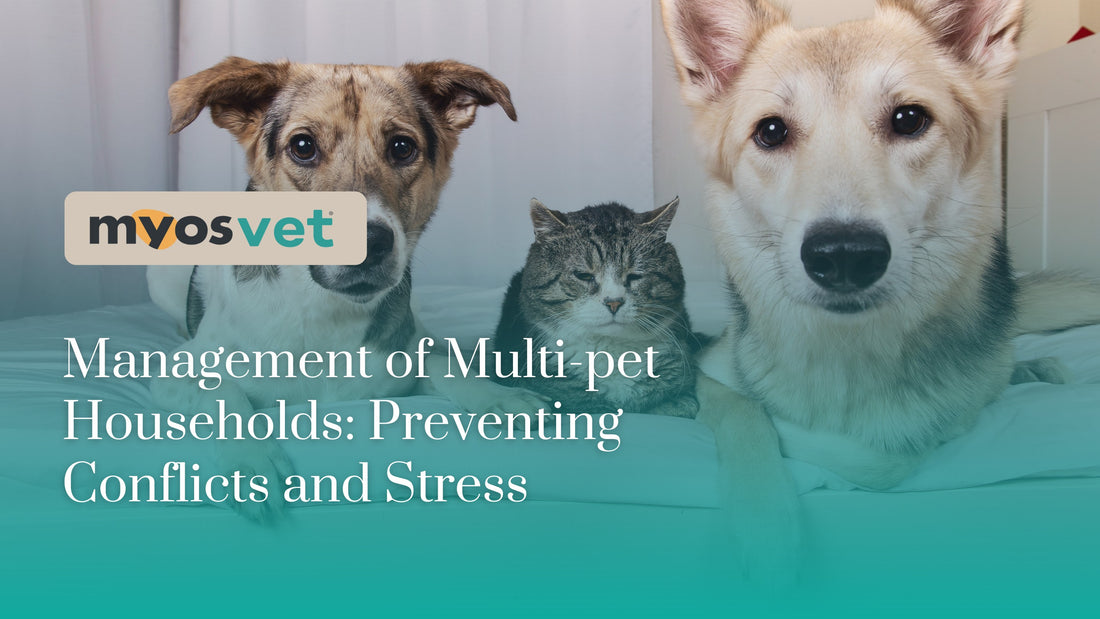
Management of Multi-pet Households: Preventing Conflicts and Stress
Share
Managing a multi-pet household presents unique challenges, particularly in preventing conflicts and minimizing stress. The dynamics of multi-pet environments are complex, with interactions influenced by social hierarchies and individual personalities. This article explores the scientific principles underlying pet behavior and offers insights into strategies that promote harmony and well-being in households with multiple pets.
Understanding Pet Dynamics
In multi-pet households, social hierarchies and territorial behaviors play significant roles in interactions. Stress hormones, such as cortisol, can escalate in pets subjected to frequent conflicts, leading to both behavioral and physical changes. Recognizing signs of stress, such as changes in appetite, grooming habits, or aggression, is crucial. Chronic stress can manifest physically as gastrointestinal issues, weakened immune systems, and decreased muscle mass.
Environmental Enrichment and Space Management
Providing an enriched environment with adequate space is essential for reducing conflicts. Pets benefit from having their own territory to retreat to and feel secure. Vertical spaces, such as cat trees and elevated perches, can help cats establish their domains, while designated areas for rest and play are important for dogs. Environmental enrichment through interactive toys, puzzle feeders, and regular play sessions can reduce boredom and stress, promoting overall well-being. Minimizing environmental stressors can prevent behavioral changes like excessive barking, chewing, or inappropriate elimination.
Behavioral Modification Techniques
Behavioral modification techniques, such as positive reinforcement and desensitization, are effective in managing conflicts. Training sessions that reward desired behaviors and gradually expose pets to each other can foster positive associations. Addressing the root causes of aggressive behavior, such as fear or resource guarding, is crucial. Behavioral stress can also lead to physical symptoms, including dermatological problems and increased susceptibility to infections.
Nutritional Support and Supplements
Nutrition significantly impacts stress management and calm behavior in pets. Diets rich in omega-3 fatty acids, antioxidants, and essential nutrients support brain health and reduce anxiety. Additionally, supplements such as MYOS Canine Muscle & Mobility Chews can help reduce anxiety in pets. These chews contain ingredients like L-theanine and colostrum, which have been shown to promote relaxation and lower stress levels. Reducing stress through nutrition can help mitigate physical changes, such as weight loss or muscle tension.
The management of multi-pet households involves a comprehensive understanding of pet behavior, environmental enrichment, and nutritional support. Recognizing individual pet dynamics, providing adequate space and enrichment, employing behavioral modification techniques, and incorporating stress-reducing supplements can promote harmonious and stress-free environments. These strategies help prevent conflicts and support the overall well-being and quality of life for all pets in the household, ensuring happier and healthier pets by mitigating both behavioral and physical health issues.
